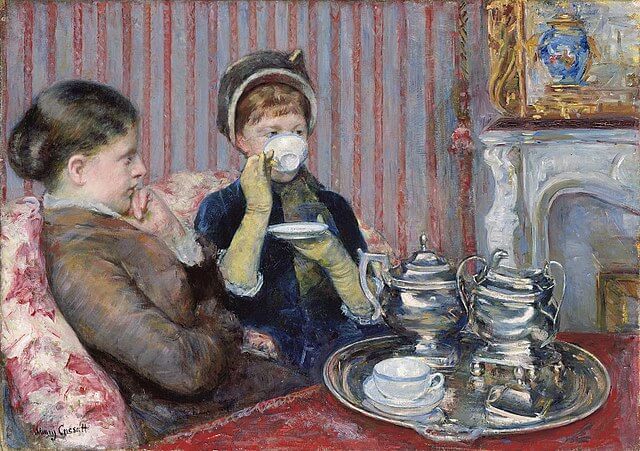Sociability • Confidence
What to Do at Parties If You Hate Small Talk
A lot of discomfort about going to social engagements is rooted in what can sound like a rather high-minded concern: a hatred of small talk. We can develop a dread of parties because we know how likely we are to end up wedged into conversations about the weather, parking, traffic or the way we plan to spend the forthcoming holidays – when there would be so many deeper and more dignified topics to address: the future of humanity, the fate of the nation, or the melancholy state of our hearts. We resent parties for holding up an ideal of community and dialogue while trapping us in unproductive and insincere banter; for making us more lonely than we ever would be in our own homes.
But we are perhaps misunderstanding what small talk is for and how we might gently find an exit from its more airless corners. Small talk exists for a noble reason: it is designed to prevent hurt. It provides us with a rich source of information so that we can safely ascertain the frame of mind of our interlocutor – and therefore gauge what more in-depth topics of conversation might safely be broached. The German philosopher Arthur Schopenhauer once darkly reminded us that we should always remember, when meeting new people, that they might be only be a few steps away from wanting to grab a weapon and end their own lives. A few moments of small talk give us the signals we need to find out who we have on our hands; it lends us time to circle intimacy from on high before determining where we might wish to land.

Furthermore, a rigid hatred of small talk overlooks that it isn’t ever the subject matter per se that determines the profundity of a conversation. There are ways of talking about death that are trivial and ways of addressing the weather that feel significant. A truly deep mind can exercise itself as much on the game of a child as on the puzzles of philosophy – and it is unfortunate snobbery (mistaking the outward label for the inner content) to discount a topic merely because it has never featured in erudite academic curricula.
We should take inspiration from how many great artists have based their work around what were, at heart, versions of ‘small talk’. In the early 1820s, the English artist John Constable painted fifty studies of the clouds above Hampstead Heath in London, finding extraordinary beauty and complexity in the ever-changing quiet aerial drama above him.

John Constable, Cloud Study
With no less open-mindedness, at the end of the nineteenth century, the French artist Paul Cézanne paid close attention to the varied beauty of apples, painting dozens of studies of these modest snacks laid out in bowls and on sideboards.

Paul Cézanne, Still Life with Seven Apples
Buddhism teaches us that, to those gifted enough to see properly, the whole world can be found in a single grain of sand. We should perceive no insult in a call to glimpse the grandest themes through the lens of small talk.
The skilled conversationalist doesn’t insist that atmospheric or traffic conditions or where a person has been at the seaside are inherently unworthy of discussion. They know that what a person feels about a cloudy afternoon might be a highway to their soul or that their experiences around parking might provide clues as to their attitudes to authority or their relations with their parents. They are not put off by having to work with humble matter; they are deft enough to use whatever is to hand.

The fear of small talk reflects a worry, hugely understandable and with roots in childhood experience, that we will be unable to influence the flow of a conversation by ourselves, that we will be the victims of the obsession or pettiness of others – and that conversation is fundamentally a natural, organic occurrence which happens to us but cannot be created by us; it may at points be very engaging, at others hugely frustrating; but the outcome is not ours to determine. We can feel that when a person says something, we must invariably respond in a similar way: an anecdote about a golf tournament needs to be followed by another; if someone has a story about a booking confusion at a hotel, the other must chip in with a corollary.
But, in truth, we have far more conversational agency than this implies; it is almost always in our power to raise more intimate or profound follow-up questions. And we can do so with the confidence that few of us are ever committed to remaining on the surface; we just don’t know how to descend to the depths. An individual who is currently talking at puzzling length about an airline meal has also inevitably been disappointed in love, had bouts of despair, tried to make sense of a difficult parent, felt confused about their direction – and will be longing, at some level, therefore to stop talking about cheese crackers and share the contents of their heart.
The confident conversationalist does not take fright at small talk and others’ occasional apparently firm attachment to it. They know that the small themes need only ever be the first, understandable and never insulting steps, towards the sincerity and intimacy all of us crave at heart.

























